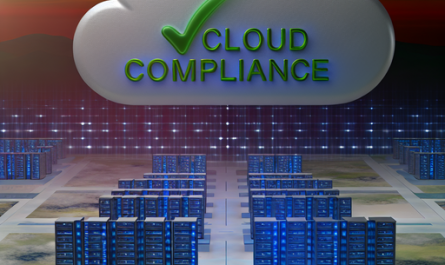In today’s digital age, data privacy and security have become increasingly important concerns for businesses of all sizes. With the rise of cloud computing and remote work, organizations are facing new challenges when it comes to ensuring compliance with various regulations and standards.
Nextcloud, a popular open-source file storage and collaboration platform, offers a range of features to help organizations meet their compliance requirements. In this article, we’ll explore some of the key considerations that organizations need to keep in mind when it comes to compliance and Nextcloud.
Get Nextcloud with 1 TB of storage for just up to €3.99 per month.
Try it now for one month free and risk-free.
1. Data privacy regulations
One of the most critical compliance considerations for organizations is data privacy regulations, such as the General Data Protection Regulation (GDPR) in Europe or the California Consumer Privacy Act (CCPA) in the United States. These regulations impose strict requirements on how organizations collect, store, and process personal data.
Nextcloud offers a range of features to help organizations comply with data privacy regulations. For example, administrators can configure encryption settings to ensure that data is stored securely and only accessible to authorized users. Nextcloud also provides tools for data retention and deletion, helping organizations manage data in accordance with regulatory requirements.
2. Security standards
In addition to data privacy regulations, organizations are also responsible for complying with various security standards, such as the ISO/IEC 27001 for information security management or the Payment Card Industry Data Security Standard (PCI DSS) for handling credit card data.
Nextcloud has built-in security features to help organizations meet these standards. For example, Nextcloud supports two-factor authentication, encryption of data in transit and at rest, and access control policies to restrict who can access sensitive information. Organizations can also integrate Nextcloud with external security tools, such as intrusion detection systems or security information and event management (SIEM) platforms, to enhance their security posture.
3. Legal and industry-specific requirements
Depending on the industry in which they operate, organizations may be subject to specific legal requirements that go beyond general data privacy regulations and security standards. For example, healthcare organizations must comply with the Health Insurance Portability and Accountability Act (HIPAA) in the United States, while financial institutions must adhere to regulations such as the Sarbanes-Oxley Act (SOX).
Nextcloud can be customized to meet these industry-specific requirements. For example, organizations can set up document classification and access controls to ensure that sensitive information is only accessed by authorized personnel. Nextcloud also supports audit logging and reporting features, helping organizations demonstrate compliance with regulatory requirements during audits or investigations.
4. Employee training and awareness
Compliance with regulations and standards also depends on the actions of employees within an organization. Employees must be trained on data privacy best practices, security protocols, and compliance requirements to ensure that they handle data responsibly and securely.
Nextcloud offers training resources and documentation to help organizations educate their employees on compliance topics. Organizations can also use Nextcloud’s collaboration tools, such as chat and video conferencing, to communicate with employees and promote a culture of compliance within the organization.
In conclusion, compliance is a critical consideration for organizations of all sizes, particularly in today’s digital landscape. Nextcloud offers a range of features to help organizations meet their compliance requirements, from data privacy regulations to security standards and industry-specific requirements. By leveraging Nextcloud’s capabilities and integrating compliance best practices into their workflows, organizations can ensure that they are protecting their data and meeting regulatory expectations.

